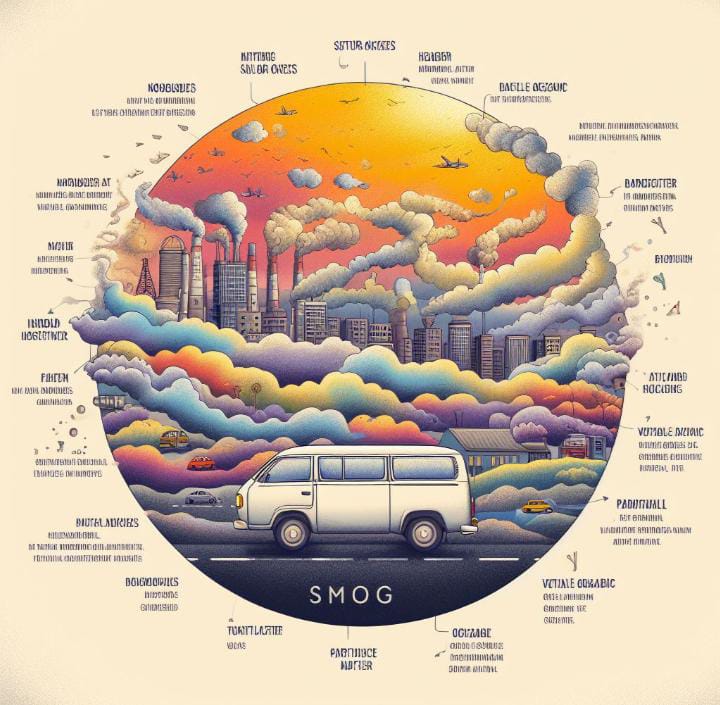The Smog Crisis in Pakistan: Its Causes, Effects, and Solutions.

Pakistan is currently facing a severe smog crisis, with major cities such as Sialkot, Lahore, Multan, Karachi, and Islamabad being heavily affected. Smog is a serious problem that poses a significant threat to public health and the environment. In this blog post, we will explore the causes and effects of smog in Pakistan, as well as potential solutions to this crisis.
Causes of Smog in Pakistan:

The main causes of smog in Pakistan are the burning of crop residue, industrial emissions, vehicular emissions, and the use of low-quality fuels. Crop burning is a major contributor to smog, particularly in Punjab, where farmers burn rice straw and wheat stubble after the harvest season. Industrial emissions from factories and power plants also contribute to smog, as do vehicular emissions from cars, trucks, and motorcycles.
Effects of Smog in Pakistan:

Smog has serious health effects, particularly for people with respiratory problems such as asthma and chronic obstructive pulmonary disease (COPD). It can cause coughing, wheezing, shortness of breath, and chest pain. Smog can also lead to eye irritation, headaches, and fatigue. Long-term exposure to smog can increase the risk of heart disease, stroke, and lung cancer.
In addition to its health effects, smog has economic and environmental impacts. It can reduce visibility, disrupt transportation, and damage crops. Smog can also contribute to climate change by trapping heat in the atmosphere and exacerbating global warming.
Solutions to the Smog Crisis in Pakistan:

To address the smog crisis in Pakistan, it is important to take a multi-faceted approach that involves government action, industry participation, and individual responsibility. Some potential solutions include:
– Implementing policies to reduce crop burning, such as providing incentives for farmers to use alternative disposal methods.
-Encouraging industries to adopt cleaner technologies and reduce emissions.
– Promoting public transportation and the use of electric vehicles to reduce vehicular emissions.
– Educating the public about the health effects of smog and encouraging individuals to take steps to reduce their own emissions, such as conserving energy at home and using environmentally friendly products.
In conclusion:

The smog crisis in Pakistan is a serious problem that requires immediate action. By addressing the causes of smog and implementing solutions to reduce emissions, we can protect public health, the environment, and the economy. Let’s work together to create a cleaner, healthier Pakistan.

6 comments